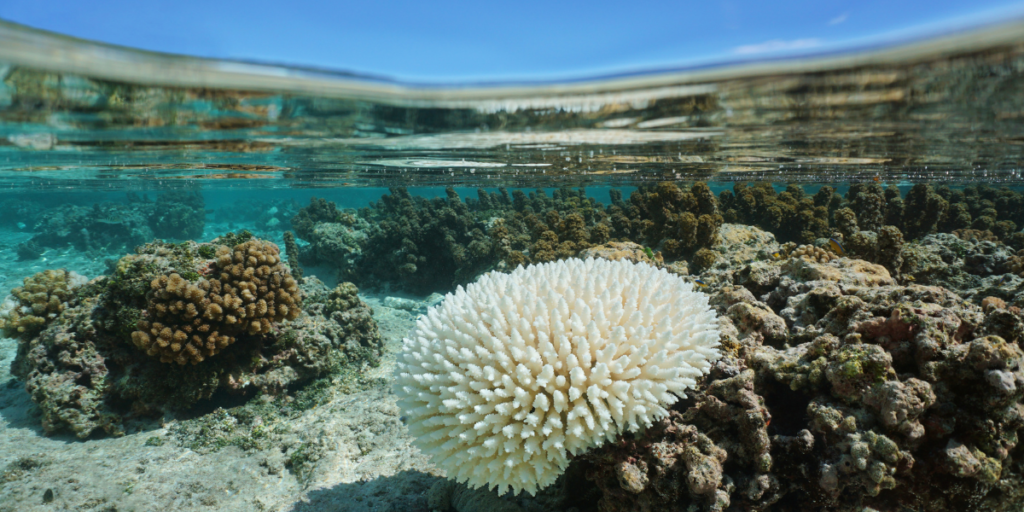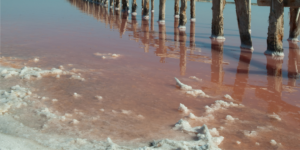Understanding the Ecological Consequences of Ocean Temperature Variability on Marine Life
You may be wondering why it’s important to understand how changes in ocean temperature affect marine life. After all, you might think that these changes only impact fish and other sea creatures, and not humans. But the truth is that the health of our oceans and its inhabitants has a direct impact on our wellbeing as well.
With climate change causing temperatures to rise at an alarming rate, it’s crucial to study how these changes are affecting marine species’ behavior, migration patterns, growth, reproduction, and susceptibility to stressors.
By understanding these impacts, we can develop effective conservation strategies that not only protect marine life but also promote sustainable practices for human activities like fishing and tourism.
So let’s dive into the data and explore how fluctuations in ocean temperature can have far-reaching consequences for the entire ecosystem.
Key Takeaways
- Climate change is causing rapid ocean temperature changes, affecting marine species’ behavior, migration, growth, reproduction, and susceptibility to stressors.
- Fluctuations in ocean temperature can lead to shifts in species distribution, alter food webs, cause coral bleaching and loss of reef systems, and have global climate implications.
- Conservation strategies should focus on reducing anthropogenic impacts, enhancing ecosystem resilience, increasing scientific knowledge, and protecting vulnerable species.
- Declining marine life can have significant economic impacts, particularly for coastal communities that rely on tourism, and it’s up to all of us to work together towards conservation efforts to ensure the survival of marine life for generations to come.

The Importance of Understanding Changes in Ocean Temperature
You need to understand why it’s crucial to know about changes in ocean temperature. Changes in ocean temperature can significantly impact marine ecosystems. They can cause shifts in species distribution and abundance and alter food webs. For example, increased ocean temperatures can lead to coral bleaching and the loss of entire reef systems. This affects not only the organisms that live on the reefs but also the countless other species that depend on them for food and shelter.
Changes in ocean temperature also have global climate implications. The ocean acts as a massive heat sink, absorbing much of the excess heat trapped by greenhouse gases in the atmosphere. As ocean temperatures rise, this has consequences beyond just the immediate effects on marine life. Warmer oceans can contribute to more intense storms and altered weather patterns around the world, affecting human populations as well as ecosystems.
Therefore, understanding changes in ocean temperature is critical for predicting and mitigating these broader impacts on our planet’s climate system.
Effects on Marine Species’ Behavior and Migration Patterns
Feeling lost and disoriented, it’s hard for many marine species to navigate their usual migration patterns when the water they rely on is warmer than expected. As ocean temperatures continue to rise due to climate change, these changes in temperature can have significant effects on marine life.
Adaptation mechanisms can range from short-term adjustments like changes in swimming speed or feeding habits to long-term evolutionary adaptations such as shifts in breeding seasons or genetic mutations. However, not all species may be able to adapt quickly enough and this disruption of migration patterns could ultimately result in a loss of biodiversity and ecological implications that are difficult to predict.
Understanding the complexities of how rising ocean temperatures impact marine life is crucial for developing effective conservation strategies that will help sustain our oceans’ diverse ecosystems.
Effects on Growth, Reproduction, and Susceptibility to Stressors
When the water is warmer than usual, many marine creatures struggle to grow, reproduce, and handle stressors. Here are some ways in which warmer ocean temperatures can impact marine life:
- Impact on metabolism: Warmer ocean temperatures can increase the metabolic rate of marine organisms, causing them to burn through their energy stores more quickly. This can lead to decreased growth rates and reduced reproductive success.
- Adaptation mechanisms: Marine organisms have various adaptation mechanisms that allow them to cope with changing environmental conditions. However, rapid changes in temperature may exceed their capacity for adaptation, leading to increased susceptibility to disease and other stressors.
- Coral bleaching: Corals rely on symbiotic algae for food and coloration. When ocean temperatures rise too high, corals expel these algae in a process known as ‘bleaching.’ Without their symbionts, corals become vulnerable to disease and death.
- Fish migration patterns: Many fish species migrate in response to changes in water temperature or other environmental factors. As ocean temperatures continue to warm, some fish populations may shift their ranges towards cooler waters or become concentrated in smaller areas.
Overall, the effects of warming ocean temperatures on marine life can be complex and far-reaching. Understanding these impacts is crucial for developing effective conservation strategies and minimizing harm to our oceans’ ecosystems.
Developing Effective Conservation Strategies
Crafting successful plans for conservation is vital in safeguarding the future of oceanic ecosystems and the creatures that call them home. With the increasing threat of climate change, it’s more important than ever to develop effective conservation strategies that consider both natural and human-induced stressors on marine life.
Conservation approaches must focus on enhancing ecosystem resilience by reducing anthropogenic impacts such as overfishing, pollution, and habitat destruction. Additionally, efforts should be made to increase scientific knowledge on how temperature changes affect marine life at different levels of biological organization.
By understanding these effects, we can design targeted conservation efforts that protect vulnerable species and promote overall ecosystem health. It’s crucial that these approaches are implemented in a collaborative manner between scientists, policymakers, and stakeholders to ensure long-term success.

The Urgency of Protecting Our Oceans and Marine Life
You need to act now to protect our oceans and the amazing creatures that call them home before it’s too late.
Climate change is causing rapid changes in ocean temperatures, which are having a profound impact on marine life. As sea temperatures rise, many species are struggling to adapt and survive.
Coral reefs are dying off at an unprecedented rate, and fish populations are dwindling.
The implications of these changes go beyond just the natural world. The economic impact of declining marine life can be significant, particularly for coastal communities that rely on tourism.
Many people travel to see beautiful coral reefs or swim with exotic sea creatures, but if we don’t take action now to protect these environments, they may disappear forever.
It’s up to all of us to work together towards conservation efforts that will help preserve our oceans and ensure the survival of marine life for generations to come.
Frequently Asked Questions
What are the main factors that contribute to changes in ocean temperature?
Ocean currents and greenhouse gases are the main contributors to changes in ocean temperature. The movement of water, influenced by winds and Earth’s rotation, can transport heat across oceans while greenhouse gas emissions trap heat in the atmosphere leading to warming waters.
How do changes in ocean temperature affect the distribution of different marine species?
Species migration and thermal tolerance are affected by changes in ocean temperature. Marine species adapt to new temperatures or migrate to cooler areas, impacting food webs and ecosystems. This has significant implications for the survival of different marine species.
Can marine species adapt to changing ocean temperatures, and if so, how?
Marine species have adaptive mechanisms and evolutionary responses to changing ocean temperatures. Some may alter their behavior, physiology, or migrate to suitable habitats. Long-term survival depends on the species’ ability to adapt and the rate of environmental change.
How do changes in ocean temperature affect the overall health of marine ecosystems?
As ocean temperatures rise, the impact of warming on marine ecosystems becomes increasingly apparent. Coral bleaching events are occurring more frequently, leading to ecosystem-wide degradation. Data suggests a need for urgent action to prevent irreversible damage and protect biodiversity.
What are some potential long-term consequences of continued increases in ocean temperature for marine life?
Continued increases in ocean temperature can disrupt the food chain and lead to coral bleaching, ultimately causing long-term consequences for marine life. Scientific data suggests that these impacts will affect not only individual species but also entire ecosystems.
Conclusion
Congratulations! You’ve successfully delved into the fascinating world of ocean temperature and its effects on marine life. By understanding the impact of temperature changes, you can help protect the fragile ecosystems that exist beneath the waves.
Changes in ocean temperature can have significant consequences for marine species’ behavior, migration patterns, growth, reproduction, and susceptibility to stressors. The implications are vast and far-reaching. With such a complex web of interactions between species and their environment, it’s imperative that we act swiftly to develop effective conservation strategies.
The urgency of protecting our oceans can’t be overstated. As global temperatures continue to rise, so too will the frequency and severity of extreme weather events such as hurricanes, typhoons, and cyclones. These events not only put human lives at risk but also threaten entire marine ecosystems.
We must work together to reduce carbon emissions and protect our oceans before it’s too late.
Remember: every action counts. Whether it’s reducing your plastic use or supporting sustainable fishing practices, there are many ways to make a positive impact on our oceans.
So go forth with newfound knowledge and let’s work towards a brighter future for our planet’s most precious resource – the ocean.




